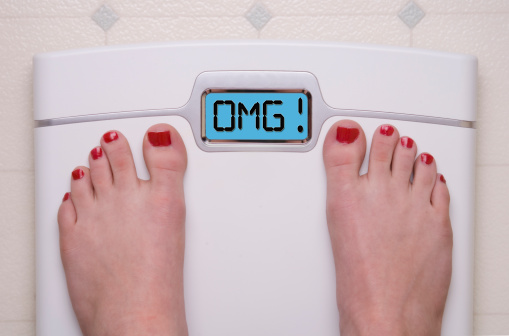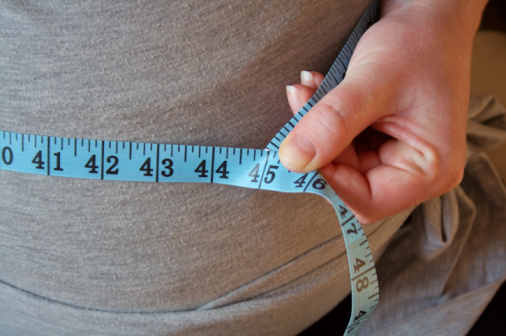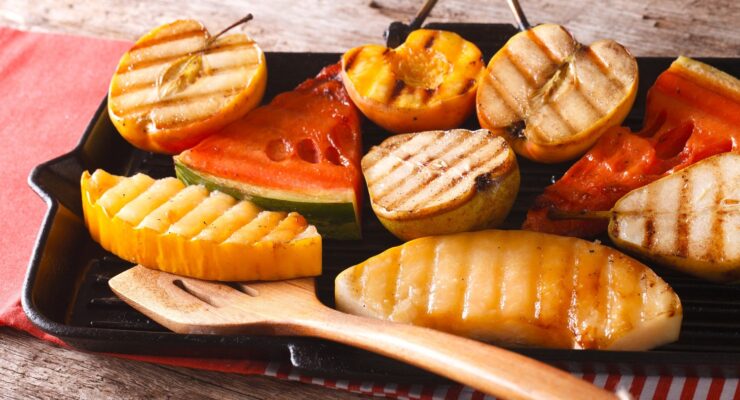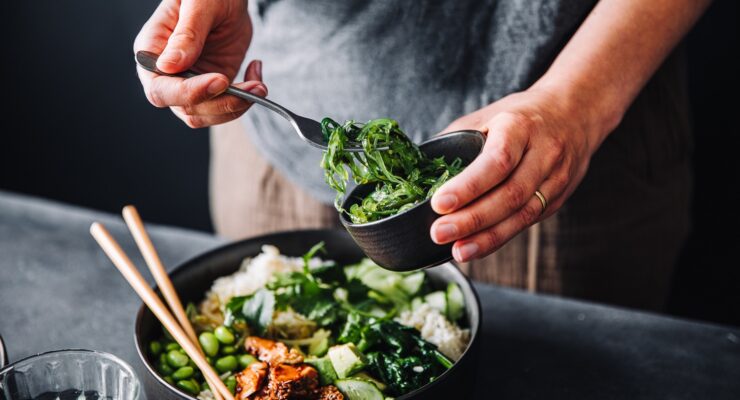7 Reasons Your DIY Diet Plan Isn’t Working
Article posted in: Diet & Nutrition
By now you know: To lose weight, you have to use up more calories than you consume. It seems simple enough—which is probably why so many people choose to tackle their trim-down solo. But anyone who has ever tried to lose weight on their own can attest that even when you think you’re doing everything right, you don’t always get the weight loss results you’re after with a DIY diet plan. There are many reasons why your approach to weight loss and dieting may be working against you.
Here are seven sneaky reasons your do-it-yourself diet plan may not be measuring up in the slim-down department:
1. Lack of Structure
The importance of a structured approach to weight loss meal plans was established years ago. In a study, published in the International Journal of Obesity and Related Metabolic Disorders back in 1996, subjects who were provided food and meal plans or grocery lists and meal plans lost more weight than those who did not receive this assistance. In a study, published in the journal Obesity Research in 2004, participants who ate portion-controlled entrees experienced greater losses of weight and fat than those following self-directed diets. Other studies have demonstrated better weight loss results in subjects using meal replacements or following structured diets that work. Whether it’s the convenience of having diet foods and meal plans on hand or the fact that weight loss experts designed the programs, the specific reason these approaches are so effective is unclear. But one thing is for sure: when it comes to weight loss, structure is good.
The Fix: Don’t go it alone. Consider meeting with a dietitian before jumping into a DIY diet plan—she can help map out a structured personal meal plan that will work with your lifestyle. Another option? Sign up for a structured weight loss program like Nutrisystem, which makes losing weight super simple. Plus, we also offer personalized programs and Weight Loss Coaches ready to answer your questions.
2. Too Many Rules
No carbs. No fat. No eating after 6 p.m. No dinners out. No chocolate—ever again. Sound familiar? One of the first things people do when they go on a DIY diet is to set hard and fast rules. But nixing nutrients like carbs and fats or swearing off chocolate for the rest of your life is a fast-pass to diet frustration—and eventual failure. Ever hear the saying “the best diet is the one you’ll stick with?” By setting too many rules, you’ll make it too hard on yourself to be successful.
The Fix: We think eating healthy should be a lifestyle, not a temporary solution for doing away with some extra pounds. With that in mind, strive for balance in your diet meal plan. Don’t eliminate food groups. Enjoy your favorite foods in moderation. Listen to your body and eat when you’re hungry—not because your rules dictate it’s time. Deprivation sets yourself up to go overboard later on. Making a healthy snack choice, like Nutrisystem’s Milk Chocolate Flavored Pretzels, will keep you from feeling like you’re missing out.
3. Lack of Support
There’s no disputing it: individuals striving to lose weight experience better results when family or friends jump on the weight loss wagon as well. But for folks who aren’t so lucky, there’s good news: weight loss coaching, in-person or over the phone, can have a positive impact on weight loss results. In fact, in a study out of Johns Hopkins, participants who received weight loss coaching over the phone experienced the same amount of weight loss as subjects attending in-person coaching sessions, and significantly more weight loss than subjects who only received weight loss pamphlets and access to a non-interactive website.
The Fix: Set up a coaching session with a dietitian or sign up for a weight loss program that offers coaching services, such as Nutrisystem.
4. Portion Distortion
According to a United States Department of Agriculture (USDA) Center for Nutrition Policy and Promotion report, the amount of food people think they eat differs greatly from the amount they actually eat. Adults tend to underestimate the amount of grains, fats, oils and sweets they consume, and overestimate their consumption of fruit, milk products, meat, poultry, fish, dry beans, eggs and nuts. Experts posit that this discrepancy might be because people don’t understand what servings and portion sizes look like. So even if your DIY diet includes healthier foods, you may be eating larger quantities than you think.
The Fix: Check nutrition labels to get a sense of what a serving size looks like for your foods. Nutrisystem’s selection of snacks take the guesswork out for you, but you can also use measuring cups for a few weeks, until you get a sense of what serving sizes look like. Once you do this a few times, you’ll be able to better estimate proper portion sizes on your DIY diet.
5. You Count Calories… Instead of Making Calories Count
Being mindful of how much you’re eating is a good start to losing weight. But when you start sacrificing nutritious foods like fruits and veggies to spare a few calories, you’ve probably gone too far. Fruits and veggies serve up lots of nutrients your body needs, including fiber, which can help you lose weight by keeping you feeling fuller, and keeping your digestive system moving.
The Fix: Instead of sacrificing nutritious foods to save calories on your DIY diet, ditch the snacks ideas that don’t dish out any body-boosting nutrients.
6. You Reward Workouts with Food
Findings from a 2014 study out of the Cornell Food and Brand Lab demonstrated that adults who were led on a two kilometer walk and told it was an exercise walk ate 35 percent more chocolate pudding at lunch than participants who were told it was a scenic walk. In a second study out of the same lab, adults told they had taken an exercise walk ate twice as many M&Ms than those under the impression that they’d taken a scenic walk. These findings suggest that many people who engage in physical activity feel inclined to reward their efforts with food.
The Fix: Choose activities you enjoy so that they won’t feel like a chore… and you won’t feel the need to reward your efforts.
7. You Go a Little Wild on the Weekends
According to a study, published in the journal Obesity Facts in 2014, researchers determined that almost everyone gains weight on the weekends and loses weight during the weekdays. Most participants weighed the most on Sundays, and the least on Fridays, suggesting that most weight loss diet destruction happens on the weekends. If that sounds like you, it may be time to reassess your meal-time choices. Are you feeling hum-drum about the small handful of superfoods you’ve deemed acceptable or bored with the same healthy meals you’ve been eating on repeat since you committed to losing weight? If you’re bored with your DIY diet, you probably won’t stick with it.
The Fix: Stick with meals based in moderation all week long so you won’t feel as entitled to splurge when the weekend hits. Need ideas? Check out these 10 Flex Dinner Recipes You Need to Try. >













